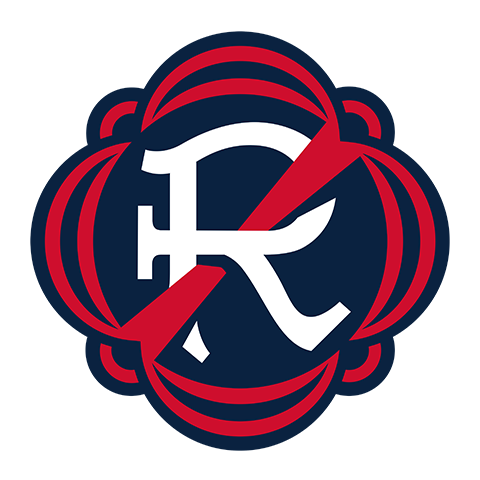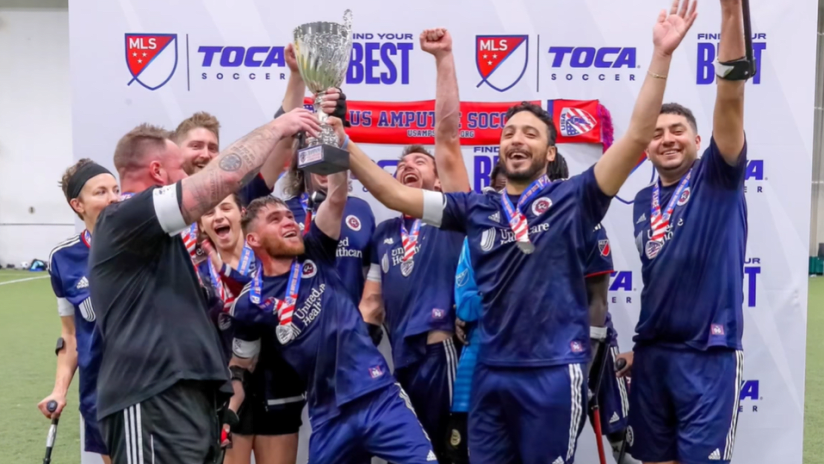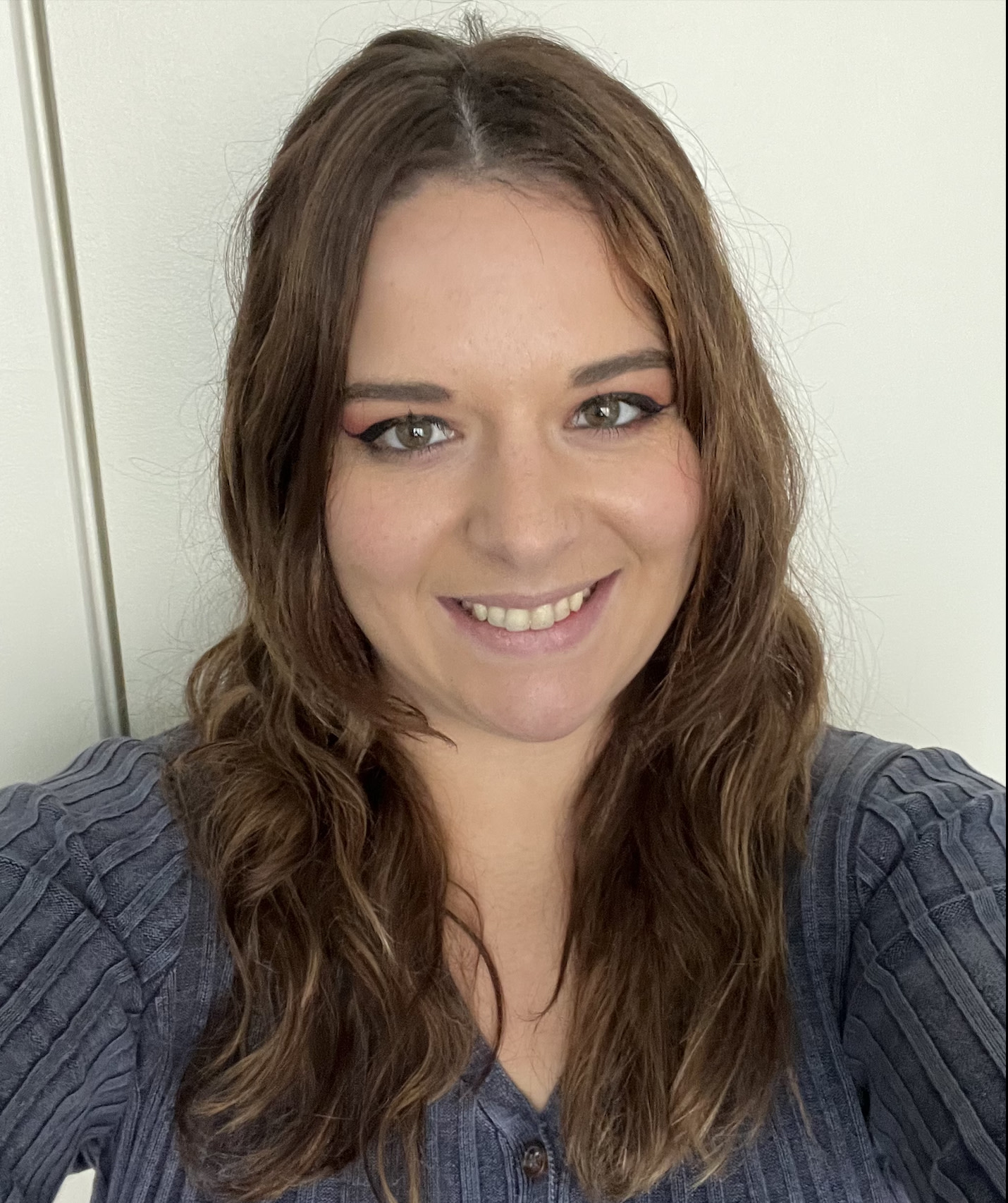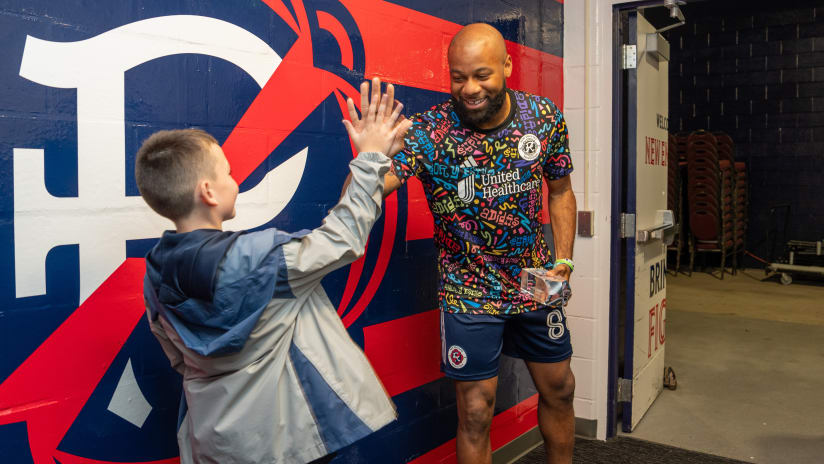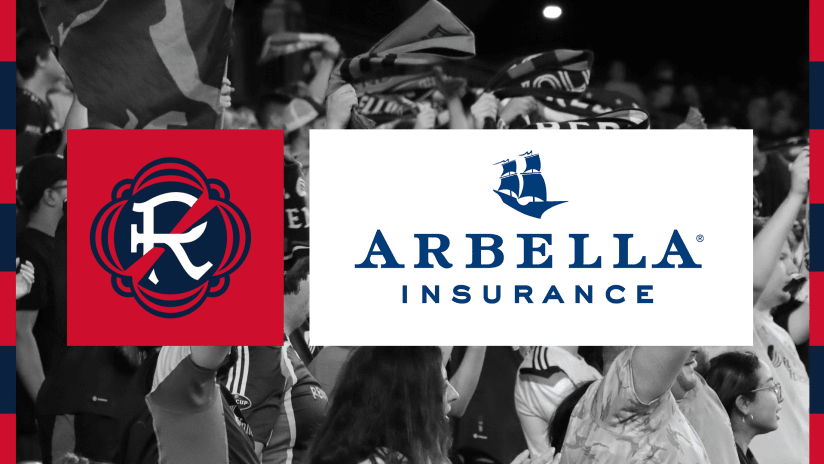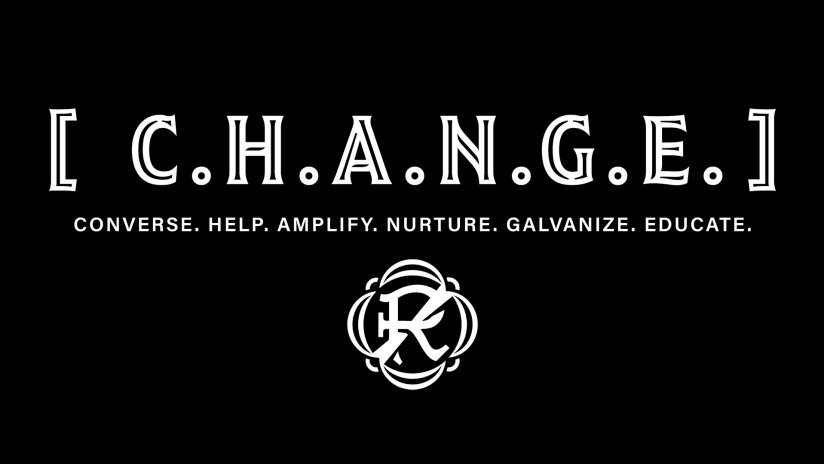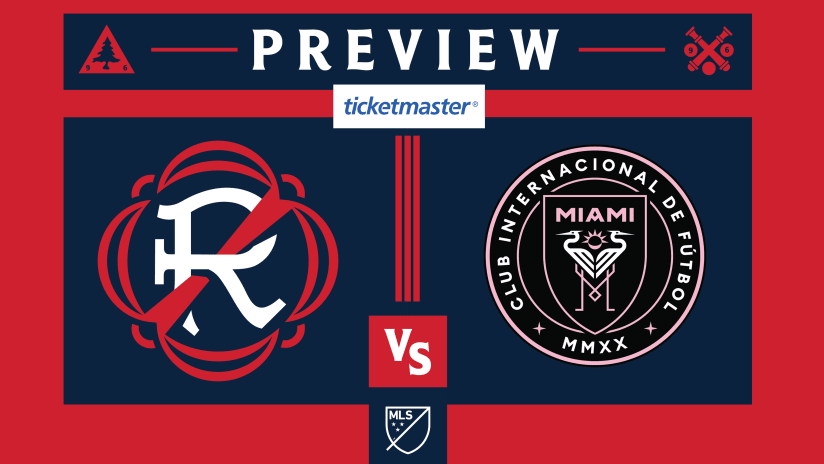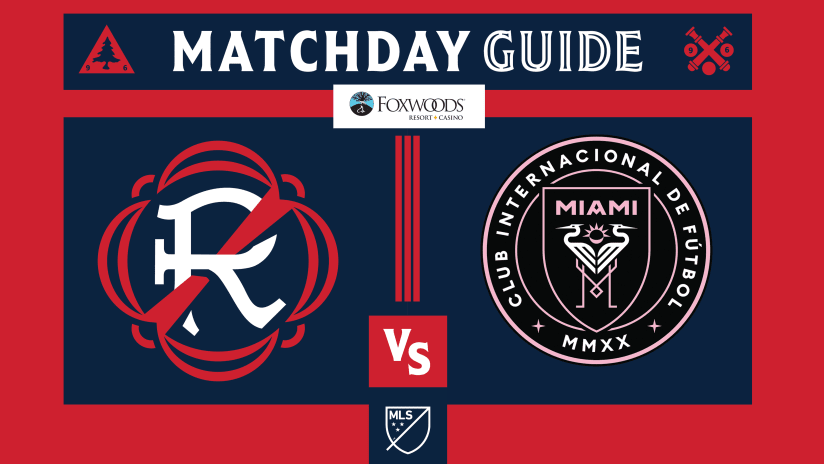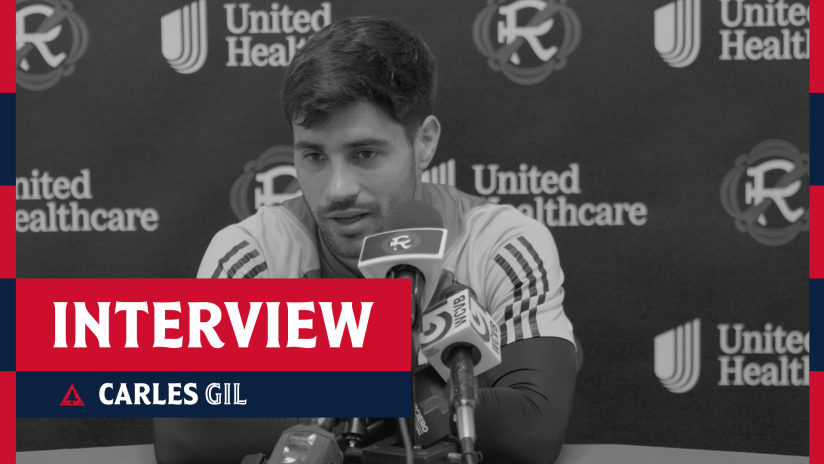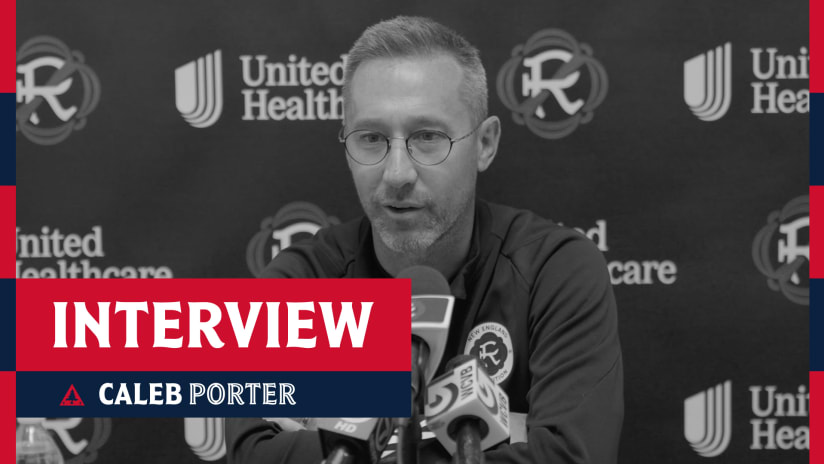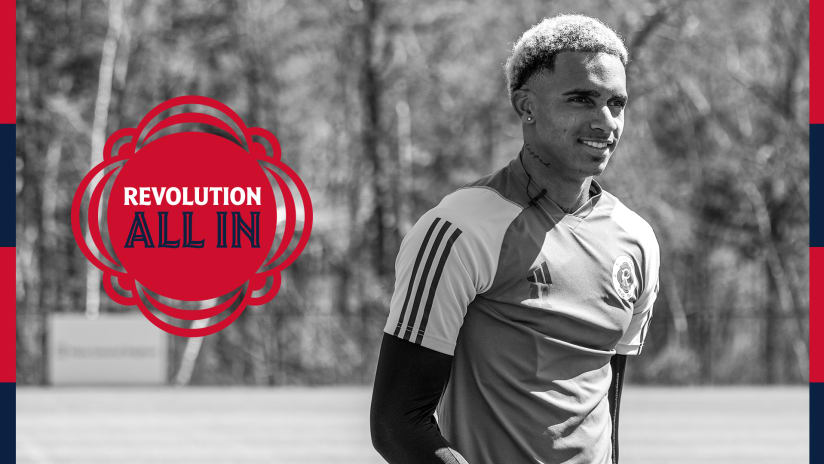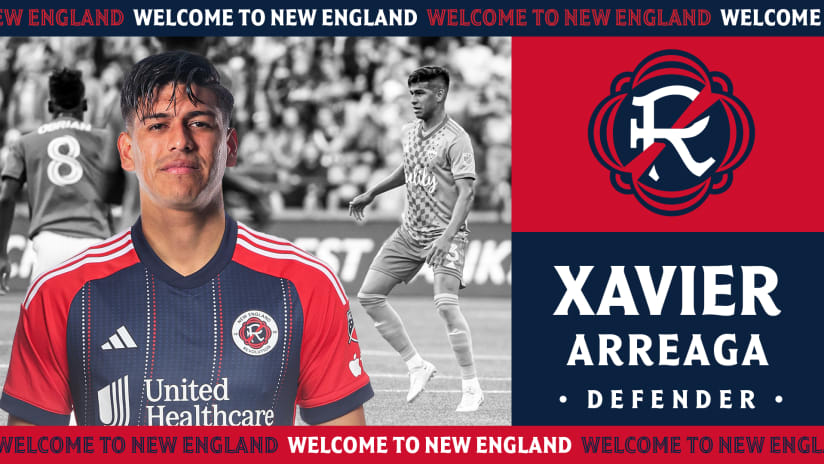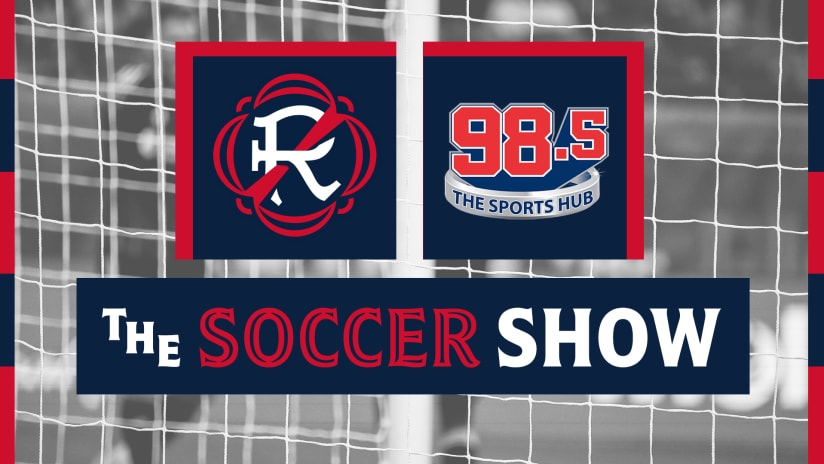FOXBOROUGH, Mass. – For any soccer player, there is no greater feeling than lifting a trophy.
It’s the moment every young athlete dreams of, the goal they strive for; the motivation that spurs the desire, as well as the hours of toil and sacrifice put in behind the scenes: the chance to create history and leave a legacy.
The New England Revolution Amputee Soccer Team have realized that very dream, writing their names into soccer history by clinching the first-ever U.S. Amputee Soccer Cup. The inaugural four-team tournament – presented by MLS and hosted in Columbus, Ohio – saw the Revs emerge victorious against Metro NY Amputee Soccer, the Columbus Adaptive Sports Connection, and Colorado, before the team defeated New York once again in the showpiece Final to secure the trophy in emphatic fashion, boasting an impressive 100 percent record.
Demonstrating the rapid growth of the sport, the tournament was a tremendous success. Attended by 47 players (the largest number ever to gather in the country), the two-day competition marked another significant breakthrough for the game, and an immensely proud moment for Revolution and U.S. Amputee Soccer captain, and Revs team co-founder Nico Calabria.
“It was awesome,” he said. “It was a really special day, years in the making – we started with the Revolution in 2018 with two people on the team, and then we did a halftime demonstration [at a first team Revs game]. Slowly and steadily, we’ve found more people, received more support, become more organized, and all of that led up to this first-ever U.S. Cup.
“Being able to bring home the hardware for New England after all the support we got, all the hard work that has gone in for so long, it was a pretty special moment to see the whole project come together. Obviously, we’re all competitive people, and winning was great, but the real big winner was the sport of amputee soccer.
“The first moment that it hit me was when we were watching the bronze medal match before our game, thinking: ‘This is really happening right now!’ Sitting on the side and watching all these people I’ve known over the course of decades – all of the work manifesting, people getting to compete, and having a great time – was just really special. It was really cool seeing everyone have that experience, and that is what is going to drive the sport forward to the next level.
“I’m just so thankful to the Revolution for making it possible for us [with funding], thankful to my teammates for making the commitment to drive all those hours, and take time away from family and work to do this. It was very much one of my proudest moments – up there with the best days of my life.”
As one of the more established sides to compete, the Revolution entered the tournament as firm favorites, and kicked off against a familiar foe in New York. Locking horns regularly over the last few years, the two sides have developed a healthy rivalry, with the Revs having edged all previous encounters. Calabria and co. produced a superb opening display with Ronny Angel, Player of the Match Musabwa Nzirimwo and the captain on the scoresheet to earn a 3-1 win.
Following up with impressive triumphs of the same scoreline against Colorado and hosts Columbus (with Nzirimwo, Calabria, and Angel all netting again), the squad stormed to the Final, setting up another intriguing clash against New York. A Calabria penalty and NY own goal clinched the silverware for New England, as well as the Golden Boot prize, which was shared between he and fellow three-goal hero Nzirimwo.
The skipper was also dubbed the tournament’s ‘Best All Around Player’, but reserved his praise for his teammates, hailing his side’s quality, character, passion and remarkable dedication. Having himself quit his full-time job of teaching to pursue his love of soccer, Calabria highlighted some of the sacrifices amputee soccer players are forced to make to follow their dreams.
“We definitely intended to go and claim the cup,” he noted. “It was understood that we were the favorites for the tournament, so we definitely had a lot of pressure on. We felt that but we definitely came with one goal, and that was to win. We have a great team with big characters and lots of passion – Kelvin Jimenez, who used to be a high-level goalie and lost his leg in a boating accident, is an incredible team member. Teams have a heart that helps bring everything together, and he picks up the attitude, talking about positive communication, modeling it. He also has a super high IQ for the game, and stood out as a strong defender. He’s a wonderful person with an incredible mindset.
“Musa Nzirimwo won the Golden Boot, and he’s one of the fastest players in the world. He joined the sport about three years ago – his coach reached out over social media and said: ‘Hey, I have this kid who plays soccer on a prosthetic, and heard about this sport. How can I get him involved?’ I went out to Syracuse to play with him and in that moment, I was like: ‘This kid is going to be an international star! He is a phenom!’ Musa is quickly becoming one of the best wingers in the world of amputee football on the international level, and certainly cemented himself as the most dangerous attacking player in the United States by winning the Golden Boot at U.S. Cup.
“We played four games in less than 48 hours. I can’t tell you how grueling these tournaments are – the fitness of it. It’s way too much soccer in a short time, but it’s what we have to do to provide access to people because folks are working. We knew that with our rivalry with New York, that would likely be the Final, so for the first game against New York, we came in thinking: ‘A win would be great but the most important thing is that no-one is injured, and that we’re ready to play the next game.’
“We got off to an early start. It was definitely a back-and-forth, an exciting game. Nobody got injured too badly, but Ronny dislocated his finger, which in traditional soccer isn’t a tough injury but in amputee soccer, it’s really hard, running around with our hands. He toughed it out for the whole tournament. He was really in a lot of pain.
“Then we played Colorado, who were a team of U.S. National Team players from different parts of the country. They had lots of raw talent, but it was the first time they’d ever played together. It was a bit of a learning curve for them but by the end of the tournament, that team was looking really strong, and they finished third after defeating Columbus in the bronze medal match. The person who scored the winning kick in that match was a guy named Dan Broome, who was at the first World Cup for amputee soccer – he’s like 55 and he scored the winning shot. It was all very much according to great script.
“Later that day, we played Columbus, and by that time, everyone was incredibly fatigued. We were happy to get a win and move forward. We had won all of the games in the group stage and we were poised to win the cup.
“We were facing New York again, and the rivalry is real. We have played them over the last three years and though there have been some close games, we had won every game. The cup was the first time they’d got to play a team other than the Revolution, and they won both of those games, so for their program, that was a really affirming moment, as well. Their team is one of the reasons I’ve really been trying to push to get more organized and bring in a team of people to support – their team has a really strong volunteer base, and they’ve got great coaches. You can see their team is on the rise right now.
“We came into the Final with a totally different tactic [to the first game]. It was an intense match, and really not the prettiest game of soccer I’ve played in. We played a high press and really dominated the run of play – all-out press, no time on the ball for them – but there weren’t many clear chances. We ended up scoring on a penalty kick, and in the closing minutes, they scored a really tough own goal, which took the wind out of their sails – it was a really competitive match, on a knife-edge the entire time, and then all their energy just evaporated.
“For us, a win is a win, and bringing home that first cup, we don’t care if it’s a pretty game or not. We were just happy to get the result. Hearing that final whistle and knowing we were champions, it was very much an affirming moment to believing in our team, believing in the support we have, believing in myself to leave my other life behind and really pursue this fully, taking a leap into the dark. It honestly feels so great to see it come together, but there’s also so far left to go – we’re just at the beginning of being able to offer opportunity, so we’re really excited to keep the momentum pushing forward.”
Played 7-v-7 on a three-quarter-size field with the six outfield players utilizing forearm crutches and one leg, and the goalkeepers only having use of one arm, amputee soccer is currently contested in 60 countries. With professional leagues hosted in the likes of England and Turkey, the sport is regarded as highly-technical and tactical, with the best teams in the world showcasing exceptional physical strength and fluid movement.
Though one of the most popular disability sports in the world, the U.S. program is heavily underfunded and under-resourced, run largely on a volunteer basis with players and staff having to juggle work and their personal lives with their love of the beautiful game, forgoing financial recompense and family time to be able to dedicate the hours and resources to play. Calabria, who played his first international match at 16 and is now also the Director of Regional Development for the American Soccer Association, admits that while the sport is celebrating exciting growth and increased opportunity, it still has a very long way to go.
“One of the biggest challenges is how the sport is volunteer,” he explained. “It’s really difficult to put food on the table, speaking for myself and others here. I had to quit my job – I’d been a teacher for the last four years, but I quit my job a couple of years ago to open up as much time as possible for training and organizing amputee soccer because there’s just so much work that needs to be done to provide the access and opportunity. I just couldn’t do it at the level I want it to be, while also teaching full-time.
“That’s true of people around the country. You go to play for Team USA at one of these tournaments, and you’re going as a volunteer. You might have to take time off work, or use your personal days. I’ve seen one of our players get fired from his job for going to a tournament. It’s like: ‘This kid is going to represent the United States right now!’ Those are the types of challenges we face. When our National Team gets together, a training camp might cost upwards of $30,000 to fly our players from across the U.S. to the event. We get a long weekend where people are taking time off work, and we simply don’t get enough time on the ball together. It would be great to have a league that stipends players and coaches enough so they can participate while holding a part-time job or something that has flexibility.
“Two guys on the Revolution team (Kamal Muhammed and Ronny) both come from Connecticut, and for the four months before the tournament, they were driving up every week on a Tuesday night – two-and-a-half hours in each direction. After the award ceremony at the U.S. Cup, I left with three other players and drove home – it was like a 14-hour drive, and I cannot tell you: if you want to let your soreness get to the next level, cooped up in a car driving vertically all day after those four games … I couldn’t walk for days afterwards. At least I’d quit my job, because the year before, I would have been going back into a full-time working week, starting right there. It’s really tough to maintain.
“The volunteer aspect and the passion of the community over the last three decades since the sport was founded in the United States has gotten the sport to where it is now, but on a volunteer basis, we’re really struggling to take it as far as it can go because we need people who are able to commit their life’s work to growing this project and taking on all of these tasks that people get done when they can. Like, my background is in education and suddenly I’ve become a social media guy of a non-profit, and it’s above my skillset. That part of it is really tough.
“Ultimately, we don’t have the resources to support ourselves. We have to fundraise too, which literally goes almost entirely right now to just offsetting the cost of players accessing the sport – literally a plane ticket to go and play for the Revolution at the U.S. Cup was covered by the New England Revolution. That made it possible for our players to get there, whereas otherwise we really don’t have that type of budget, and some of our players are unable to make that financial commitment, especially when it comes to taking time off work.
“Right now, I’m in the process of starting out my own non-profit here in New England, and building a Board of Directors who will carry out of the work of the organization because I’ve been doing it on my own for some time, and it’s definitely the moment to kick it to the next level. We’re looking at ways of stipending players, fundraising to hire an Executive Director in New England that would be able to carry this work out on a daily basis. I would really just love to play soccer at this point of my life, and hand off the administrative work of growing this type of organization into more capable hands. Those are some of the goals we have.”
Despite the challenges currently faced, the future is most definitely looking bright for amputee soccer, especially for the Revolution team.
In 2024, the U.S. Amputee Cup will be held in New England, hopefully doubling the number of its participating teams, whilst the United States National Team is gearing up to compete at its first Women’s World Cup tournament. Reflecting on the growth of the sport, Calabria is honored to have played his part in creating better opportunities for people with limb difference, and cannot wait to discover what the future will hold for the game in this country.
“It’s definitely still small, but it’s on the cusp of becoming really big,” he continued. “Going from two people, which was me and Rafael [Perdigão] (who was the other co-founder of the team with me but has since gone back to Brazil) to now … It took four years to get to the point where we have a full competitive team. Now, we’re starting youth programs. There has been so much going on.
“The support we get from the Revolution has been such a driving force in making that happen. It’s helped us find new players, it helps us to get to the tournaments, it helps us in so many ways that makes it possible. When we get to do the halftime demonstrations at Gillette Stadium, or the Revolution reposts something on social media, it always leads to another connection – more people follow the account, more people learn about amputee soccer. It’s about getting the word out to the right people, and that support always leads to the next thing and the growth of the program.
“One of the really tough things for people with disabilities is that they want to compete, and they want to compete on an equal playing field, and that’s the challenge: finding enough people in that category to have competition. The vision is really having amputee soccer programs in regions across the United States so that anybody would be able to access a program within reasonable driving distance on a regular basis, for all ages, all genders, all experience levels.
“I got an e-mail from a mother who lives in Wyoming, whose kid wants to get involved, and it’s great to be able to say: ‘We have a program growing in Colorado. Here are these events, here’s some information about financial support to get you there.’ It’s about removing the barriers, because I would have loved to play on the Revolution Amputee Youth Team when I was a kid if it were available. Now, we’re building those opportunities so that any person with limb difference in the United States has access to amputee soccer, and that’s also going to lead to a more competitive national program. Maybe the goal is to win a World Cup, as well!
“2024 is looking like it’s going to be the biggest year for soccer in our history. The U.S. Cup next year is going to be held in New England in the fall, and we’ll hopefully have eight teams competing across the United States on a regular basis, eight teams at that cup. The Revolution have already said they’re excited to be the hosts of the tournament, so that should be pretty cool. We’re looking at how to get the games on TV to get in front of even more people. We also have the first-ever Women’s World Cup, which will be held in Colombia in November – the United States team is going to send its first ever women’s team to potentially bring home some hardware. That whole project is really exciting, and the women involved in it are pioneers.
“The sport is exploding right now both in the States and around the world. It's just a super exciting time for amputee soccer, a very exciting moment. If anyone was interested, there’s a lot of stuff we could use help with. We’d love for more people to follow our Revolution Amputee Soccer social media accounts (Twitter: @RevsAmpSoccer, Instagram: RevolutionAmputeeSoccer). We’re also looking for volunteers to support the team – we’re looking for a coach, we’re looking for folks who want to referee …
“We have a community event on Thursday, December 21 – that’s our last practice of the season and we’re using it as a reflection and celebration of the year and what’s to come, starting the discussion about planning this event for 2024 in Boston.
“We just can't wait for 2024!”
Congratulations to the Revolution Amputee Soccer team!
Roster: Corey Laycock (GK), Pierre Fernando (GK), Jack Manning, Vinny Fischer, Nico Calabria (c), Kamal Muhammed, Kelvin Jimenez, Ronny Angel, Musabwa Nzirimwo, Michael Connors
